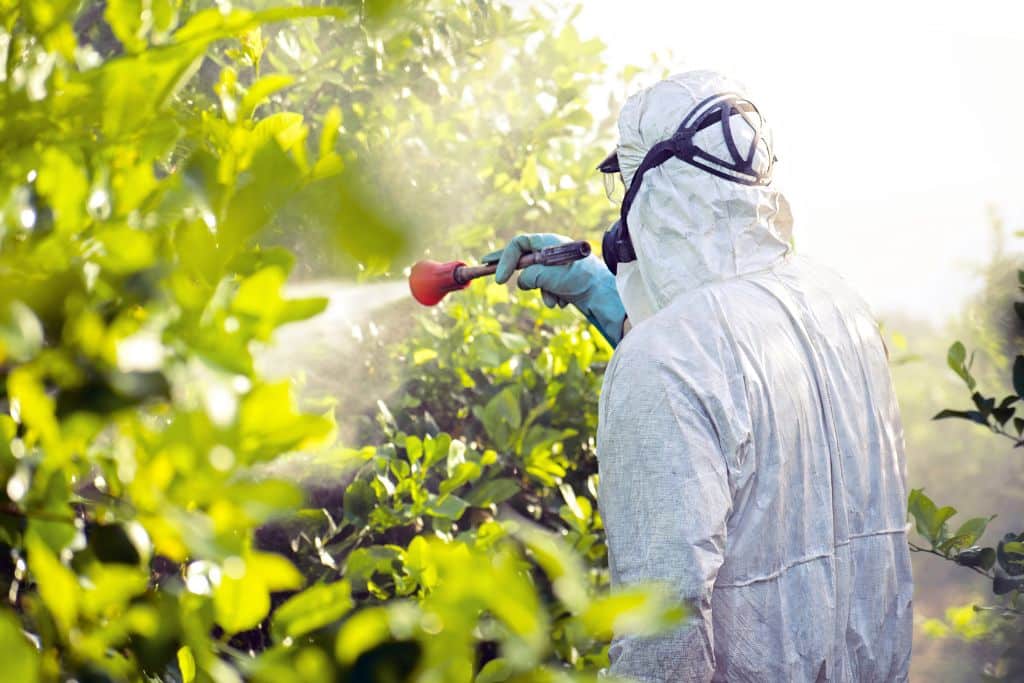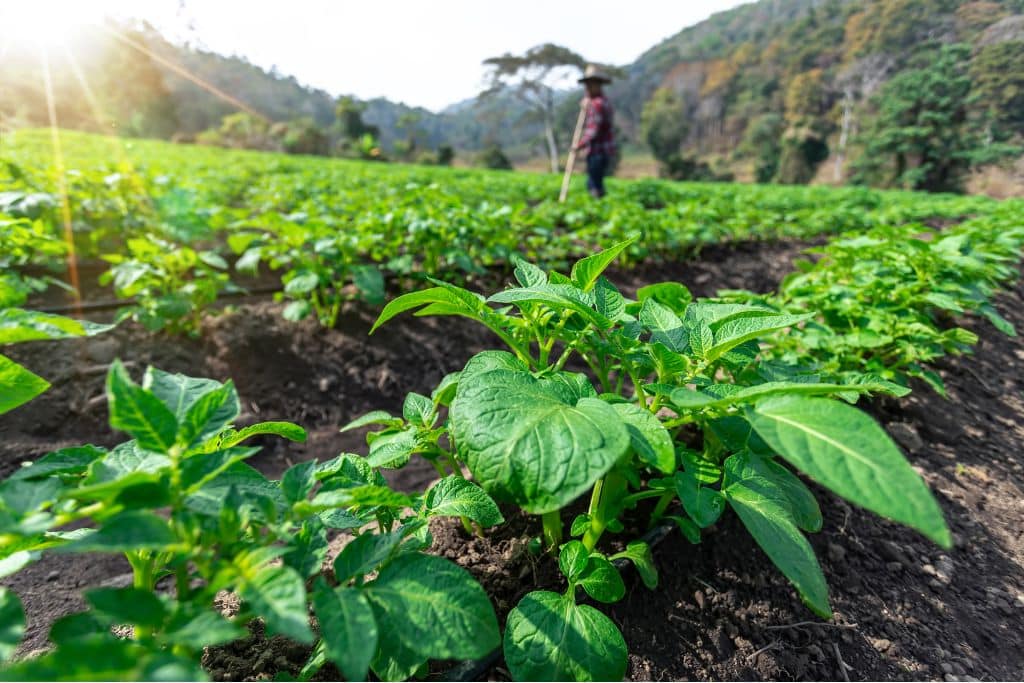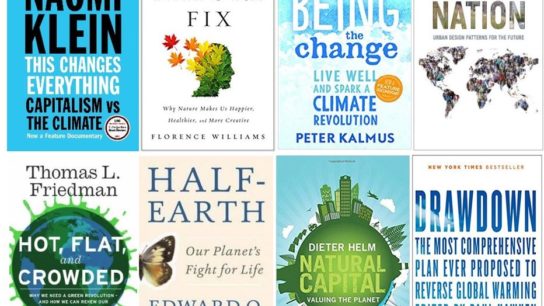The use of pesticides, either on a domestic or commercial level, has severe repercussions on the environment. In this piece, we explore what exactly it is about pesticides that make them a threat to soil health and ecosystems and look at actionable insights you can implement today to practice pesticide-free gardening.
—
How Do Pesticides Impact The Environment?
Whether in small or large quantities, the use of pesticides has an impact on the environment. Pesticides – chemical substances derived from both synthetic and natural sources used to control or eliminate pests, including insects, weeds, and fungi – can easily contaminate soil, water, turf, and a wide range of other vegetation. Besides vegetation, pesticides can kill insects, native plants, and many other species, including birds and fishes. While using pesticides in farming can have its benefits in terms of higher yields and better quality produce, they still pose significant risks to the wider environment, for example through contaminated water and soil. What’s more, residues that survive in groundwater can also go on to affect livestock and crops later in the cycle.
While pesticides are designed to target pests, they can have adverse effects on human health if used improperly or in excessive amounts. Prolonged or significant exposure to certain pesticides has been associated with health concerns such as respiratory issues, neurotoxicity, reproductive problems, and an increased risk of certain cancers.

For these reasons, the best thing one can do to protect biodiversity and the environment is to stop using pesticides altogether, especially if one is using them in a garden or an allotment.
There are so many alternatives to help you practice chemical-free gardening that can not only save you money but also safeguard the environment.
How To Practice Pesticide-Free Gardening
1. Check Compost Is Peat-Free (Or Make Your Own)
The first thing you can do to practice chemical-free gardening is to check that your compost is peat-free. The process of extracting peat is known to contribute to greenhouse gas emissions, since when it is harvested and dried, the carbon contained in the peat is released into the atmosphere.
Nowadays, there are many sustainable alternatives to peat that are great for the environment and also help you to replicate what peat does for your plants without the negative environmental impact.
Even better than buying compost and checking it is peat-free is to make your own. Get yourself a compost bin for the garden, where you can compost leftover vegetables, garden trimmings, coffee and tea bags, fruits, eggshells and nut shells. Then, put it into the top of your compost bin; as you add more, the structure of the compost bin will help speed up the decomposition process and moisture retention.
It takes between six months to two years for compost to fully mature – also depending on what you have put into your compost bin. However, you really only need to compost your soil once a year, so this works perfectly for most people. A great way to save money, generate less waste, and reduce your environmental impact at the same time.
2. Make Sure Your Rotate Your Crops
Rotating your crops is another way to reduce the need for pesticides. When you rotate your crops, you break the pesticide cycle and help prevent any bugs from building to a level that is damaging to your plants.
While this alone will not completely prevent any bugs or insects, it is still a good thing to implement as part of a wider strategy to reduce your use of pesticides. For larger gardens or spaces where crops are regularly rotated, you can consider turning to a plant hire to access cost-effective tillers or cultivators that will do this thoroughly and help you improve the consistency and aeration throughout the soil.
3. Research Companion Plants
Something else you can do to practice pesticide-free gardening and reduce the need for pesticides is to research companion plants. This is a highly-effective trick, as planting companion plants around your garden, whether it is around fruits and vegetables or other plants that are prone to damage from insects, can keep bugs away and ensure the long-term health of your garden or allotment.
Unfortunately there is no one plant that helps to get rid of all bugs, so you might have to research for the right companion to the plants you are having issues with. For example, sage helps repel cabbage moths and carrot flies, basil keeps whiteflies away, and oregano repels most pests. Sunflowers are another great companion plant to boost pollination rates and keep ants away.
4. Remember That Not All Bugs Are Bad
The majority of the bugs and insects that are in your garden are not harmful and actually help create a biodiverse garden. Good bugs include things like ladybirds, bees, spiders, centipedes, and lace wigs, which can help eat pests that harm your garden, pollinate your plants, provide foods for birds and animals that also eat pests, and even improve soil health. So, rather than wanting to remove bugs completely, instead focus on things like rotating your crops and choosing companion plants to help naturally remove the bad bugs and keep the good ones.
Final Thoughts
It’s possible to maintain your garden without the use of pesticides, to create healthier plants in your garden whilst also reducing the environmental impact your garden has overall. With a few small changes, you can make a big difference, so moving into the summer start to make these changes and your garden and the environment will thank you for it!
You might also like: All You Need to Know About Sustainable Gardening

















